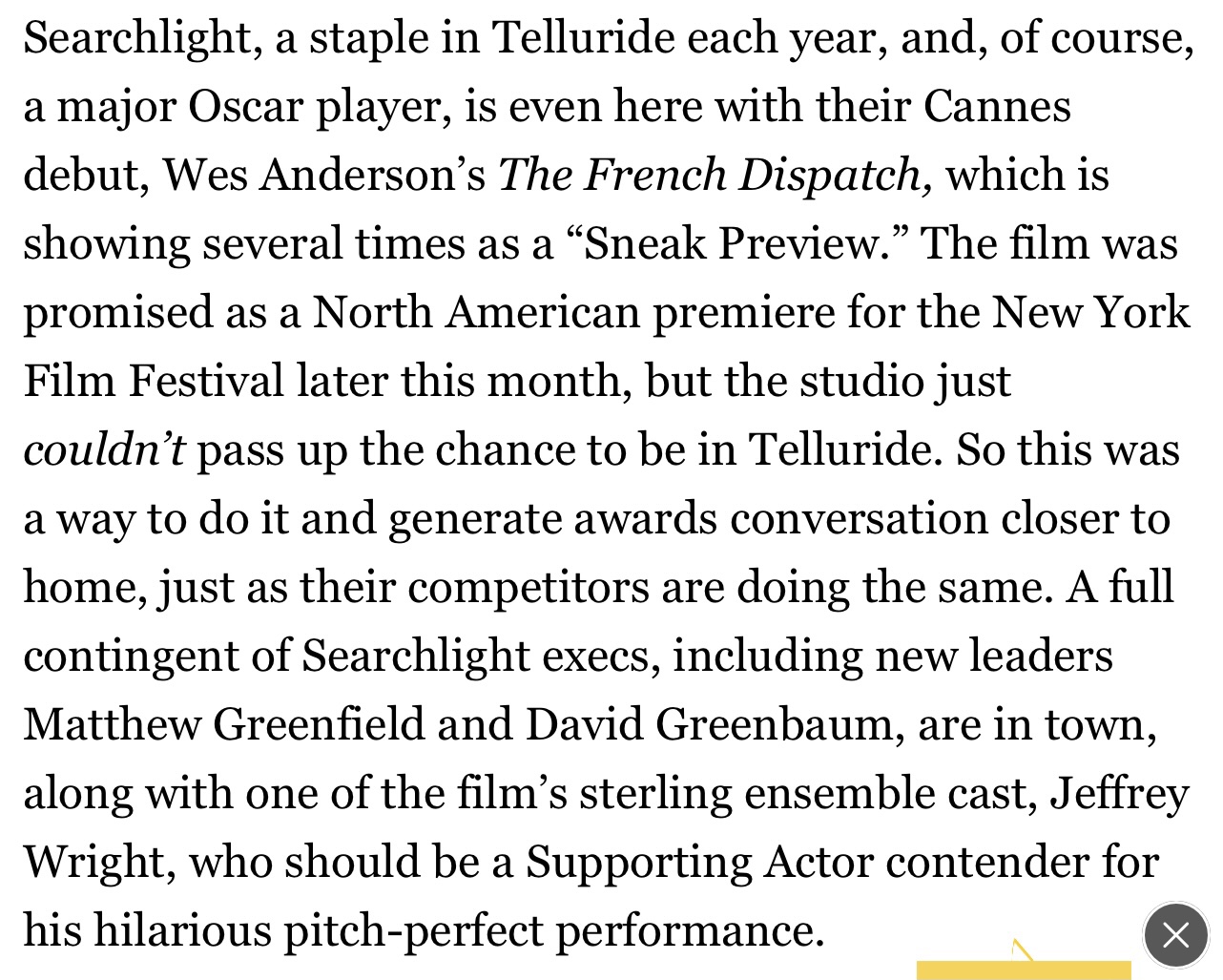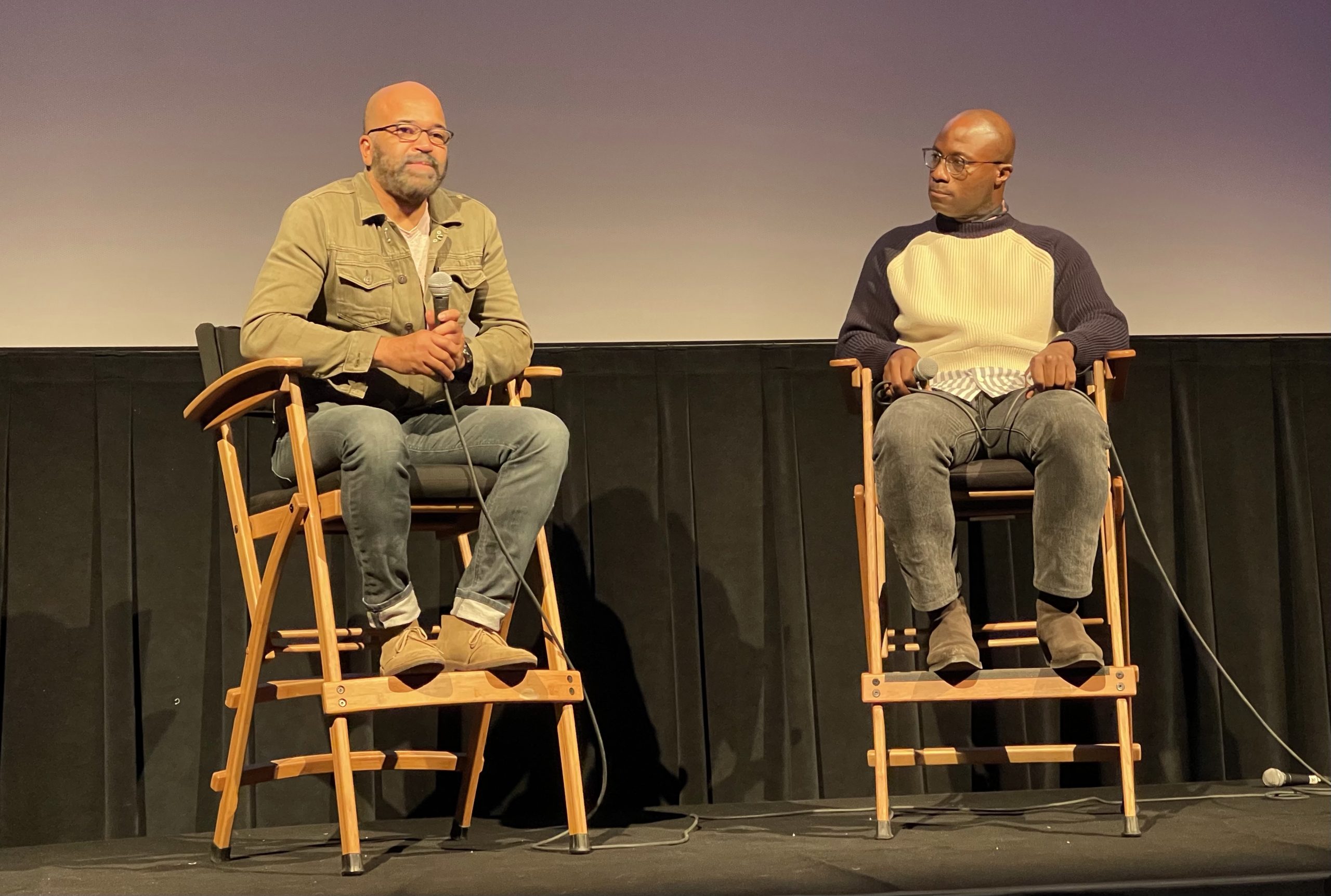Initially written during Monday’s 858–mile marathon, re–edited and tweaked in West Hollywood on Tuesday morning: On Sunday night (9.5) I finally caught Wes Anderson’s The French Dispatch, and there’s no question that it’s brilliant and (I mean this respectfully) oddly hateful in a chilly sort of way.
It’s a visual knockout on a shot-by-shot basis. but except for a scene or two featuring Jeffrey Wright it refuses to provide any sort of narrative tissue or emotional connection with the characters. It’s all arch attitude, snide-ironic voice-overs and deadpan expressions, and after a while it makes you intensely angry. That or your spirit wilts or you become weak in the knees.
The French Dispatch is a bullwhip immersion in hardcore, doubled-down Wes. It’s not that there’s no way “in” as much as there isn’t the slightest interest in offering any kind of common humanity element.
So much so that I began to wonder if Wes might be going through a phase vaguely similar to Jean-Luc Godard’s Marxist-Maoist revolutionary period (‘68 to ‘79). I ask because it’s a pure head-trip objet d’art — there’s no sense whatsoever that Dispatch is looking to engage on any kind of semi-accessible level, even to the extent of reaching people like me.
It’s so mannered and wry and rapid-fire ironic that it sucks the oxygen right out of your lungs.
That said, I loved the boxy (1.37:1) cinematography. I was also kind of wondering why Wes didn’t use 1.66:1 more often. (I’m actually not sure he used it at all.). It seemed to be about 85% boxy and 15% widescreen scope (2.4:1).
For me the most humanly relatable moment doesn’t involve Wright’s character. It happens, rather, during the 1968 sequence that costars Frances McDormand as a Dispatch staffer writing about the fevered climate of French student revolt. Asked if writing is a lonely, isolating profession, McDormand answers “sometimes.”
There’s no chance that anyone this fall will even flirt with the concept of Dispatch being worthy of above-the-line Oscar noms — at best it could land some for production design, costumes, makeup, editing.
Again, Deadline‘s Pete Hammond:














